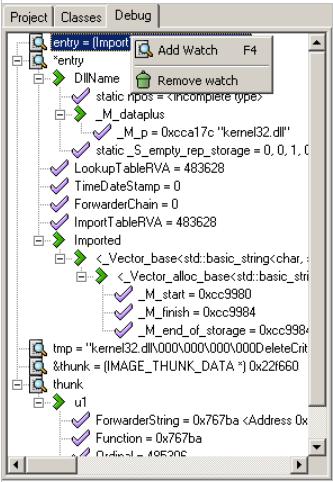IDE simplifies Linux batch data terminal programming
Jun 16, 2004 — by LinuxDevices Staff — from the LinuxDevices Archive — 8 views Esfia has achieved the first stable release of its integrated development environment (IDE) for Intermec's uClinux-based CK1 batch data collection terminals (pictured on the left). The IDE targets developers of custom data collection applications, including those without previous Linux experience.
Esfia has achieved the first stable release of its integrated development environment (IDE) for Intermec's uClinux-based CK1 batch data collection terminals (pictured on the left). The IDE targets developers of custom data collection applications, including those without previous Linux experience.
What's a “batch data collection terminal?”
Batch data collection terminals are low-cost handheld devices commonly used by warehouses, delivery agents, and contract shelf stockers to manage and track inventory. Unlike more expensive connected (typically wireless) data terminals, batch terminals download data in batches, providing an inexpensive solution for applications that do not require real-time inventory control.
Linux is thought to have a promising future in the batch terminal market, due to the cost sensitivity of the market. The market for rugged PDAs and wearables as a whole is set for 25 percent to 35 percent compound annual growth (CAGR) through 2007, according to market research from VDC.
The Intermek CK1 is said to be the first batch terminal to run Linux. It runs a 2.4-series uClinux based OS implemented by Esfia, a venture-funded embedded Linux startup based in Taiwan. The inexpensive, ruggedized CK1 supports barcode scanning, linear imaging, and custom application downloads.
Esfia's CK1 IDE
According to Esfia, programmers without Linux experiences can use its new IDE to develop and build commercial applications using a Windows host environment. The IDE is derived from Dev-C++, a full-featured open source C/C++ IDE that uses the gcc and g++ compilers. The IDE also incorporates Esfia's GUI libraries and utilities.

The Esfia IDE includes a graphical debugging browser
Esfia lists the features of its Intermec CK1 IDE as follows:
- Supports GCC based compilers (Cygwin included)
- Supports ARM
- ELF cross compiler
- Integrated debugging (with GDB and Insight)
- Support for multiple languages (localization)
- Class browser
- Debug variable browser
- Code completion
- Esfia OTK GUI libraries and APIs
- Device drivers APIs
- Function listing
- Project manager
- Customizable syntax highlighting editor
- Quickly create windows, console, and static libraries
- Support of templates for creating your own project types
- Makefile creation
- Edit and compile resource files
- Tool manager
- Print support
- CVS support
- Find and replace facilities
- Icon editor
- Add application to device
- Simulator
- Keyboard remapping utilities
- Edit boot procedure
- Change device logo
- SDK environment setting
Availability
The CK1 IDE is available immediately, with documentation and direct support, from Intermec. For more details about Intermec's CK1, be sure to read our complete Intermec CK1 Device Profile.
This article was originally published on LinuxDevices.com and has been donated to the open source community by QuinStreet Inc. Please visit LinuxToday.com for up-to-date news and articles about Linux and open source.